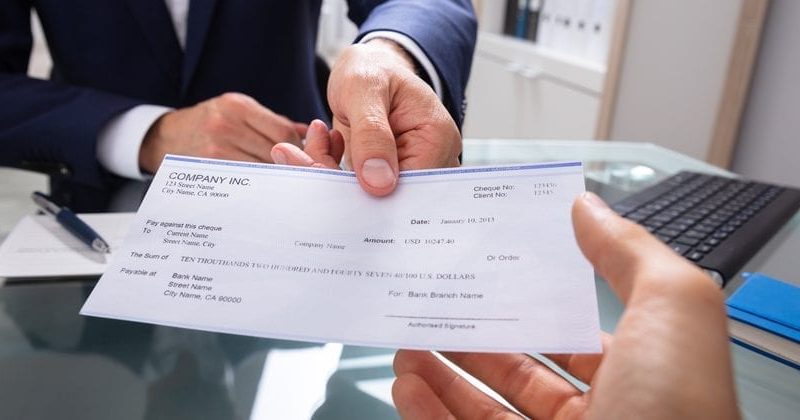Cash a Check
Triston Martin
Nov 02, 2022
Going to a bank or credit union where you already have an account is the quickest and easiest method to cash a check that you have written. Below are several options available to you beyond opening a bank account. Once you've entered a bank, proceed with the processes that are listed below:
- Inquire about any costs associated with cashing the check and possibilities for obtaining your money at a lower cost.
- Sign your name in the space provided on the reverse of the check designated for endorsement.
- Sign and date the deposit slip when you have completed it if one is required.
- Please provide the teller with a valid form of identification.
- Before leaving the bank, you should withdraw your cash and store it securely.
Where Can I Cash My Checks?
The ideal venues to cash a check are either your bank or the bank on which the check is drawn.
When Will You Get the Full Amount?
When you deposit a check, the restrictions that govern when you may access the money in your account vary depending on the bank or credit union you use. If you deposit a check for less than $200 in cash at a financial institution in person, you will often be able to retrieve the whole amount on the next business day.
You may be unable to cash a check for the full payment, particularly when the payment is for more than $200. Going to the bank of the person who wrote the check is advantageous since it increases the likelihood that the whole check amount will be available immediately. This is because the bank in issue has real-time access to the checking account in question, which allows it to verify that there is sufficient money accessible in the account of the check-writer. If the check is for more than $200, you will often be required to wait until the second business day before you may utilize the cash.
Policies Regarding the Availability of Funds
If you cash a check at your bank, the teller may only permit you to withdraw the first $200 in cash, and you may have to wait a few days before the remainder of the money is made accessible to you. There is a good chance that the bank will give you permission to withdraw more cash right away (or spend the money using your debit card). However, until the check has been cleared, there is a possibility that the check could bounce, in which case you will be required to replace the money.

Alternative Banks and Financial Institutions That Cash Checks
Checks may also be cashed for you at establishments specialising in cash advances, payday loans, and check to cash. However, because of the hefty costs they often demand, it is better to avoid going to such locations. The costs build up over time, which results in you having less money available for other expenses.

If you create an account with a bank or credit union, you will probably have more favourable terms (or will not be subject to any fees at all). Open a bank account if you anticipate getting more than a few checks over a year. If you have a bank account, you will not only save money on fees, but you will also most likely save a significant amount of time. For instance, instead of going to a check-cashing shop, you may utilize the mobile deposit option offered by your bank or credit union to deposit checks using your mobile device. This saves you time and money.
You may cash checks in various grocery shops and supermarkets, and the fees are often lower than those at specialized check-cashing establishments. There may be a one-to-three-dollar price range available (or less). Inquire at the customer service desk at the front of the business about the availability of money services.
If you cannot create a bank account, you may want to consider getting a prepaid card account instead. Some prepaid cards even enable you to deposit checks using your mobile phone; in some cases, there are no monthly costs associated with using these cards. After that, you may use the card to withdraw cash or make purchases, but it's possible that you won't have access to the whole amount of money until the check has been processed and cleared.







